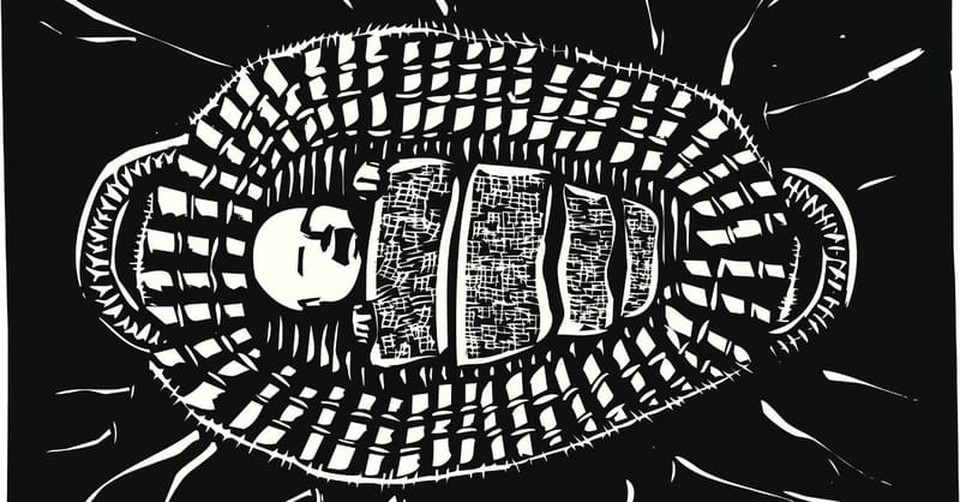"Fear of God": A Liberating Emotion?

Exodus 1.17 The midwives, fearing God, did not do as the king of Egypt had told them; they let the boys live.
The Torah does not say the midwives saved the babies because they could not bear to harm them, nor does it say the midwives saved the Hebrew babies because they loved God. They saved the babies because “they feared God.”
God is the Source of Moral Code
Fear of God—when that God is the moral God of the Torah, the God of the Ten Commandments, the God Who commanded, “Love your neighbor as yourself” —is necessary to make a society of moral individuals. Of course, there are moral atheists, just as there were moral pagans, and moral individuals in even the worst cultures. But you cannot build a good world with a handful of individuals who happen to be good people. You need a universal moral code from a universal God Who is the source of that moral code, and this God must judge all people accordingly. Consequently, “fear of God” is as inevitable as it is necessary. If God judges how moral we are, of course there will be fear of Him—just as there is of a human judge. Conversely, if God does not judge people, there is no reason to fear Him.
Fear of God over Powerful People
There is another important moral aspect to fear of God. People fear those who are more powerful than they are. Therefore, the only way not to fear powerful people is to fear God. Thus, in the instance recorded here, those who feared God saved Hebrew babies, while those who feared Pharaoh helped drown Hebrew babies.
God-loving and God-fearing
Remember, it was not love of God that prompted the midwives’ moral heroism. In our time, many people invoke the commandment to love God but ignore or even disparage the commandment to fear God. While many Godbelievers will engage in heroic self-sacrifice out of love of God, most Godbelievers are moral on a day-to-day basis because they believe they will be judged by God. That’s why, for example, in traditional Western societies, the finest people were routinely described as “God-fearing,” not “God-loving.”
Liberation through Fearing God
It was the midwives’ fear of God that liberated them from fear of the Egyptian tyrant. This point is often overlooked: Fear of God is a liberating emotion, freeing one from a disabling fear of evil, powerful people. This needs to be emphasized because many people see fear of God as onerous rather than liberating. This fear is what gave the midwives the strength to carry out what is, as far as we know, the first recorded act of civil disobedience in history. Indeed, fear (and sometimes love) of God explains why a disproportionately high number of dissidents in totalitarian societies have been believers in God.
When I visited the Soviet Union in 1969, I smuggled out a Soviet Jewish dissident song whose lyrics included the words: “I fear no one except God, the only one” (“Nye byusa nikovo krome boga odnavo”). Those words were all the more remarkable in that the vast majority of Soviet Jewish dissidents were not religious. But they understood the simple moral and logical fact that if one “fears no one except God,” one can muster the courage not to fear a totalitarian state. And these simple words also explain why totalitarian states like the Soviet Union so feared and fought against belief in God. Because belief in God posits there is something higher than the Party, it constitutes a fatal threat to secular totalitarian societies (that’s why North Koreans have been horribly punished for owning a Bible).
“Fear of God”
In the Torah, the term “fear of God” is generally used when describing non-Jews. For example, when Abraham worries Sarah will be mistreated in Gerar, he explains: “there is no fear of God in this place” (Genesis 20:11). Thus, the use of this phrase to account for the midwives’ behavior provides yet another indication that the midwives were likely not Hebrews.
Moral Heroes
Finally, it is important to point out that the Torah’s account of the moral heroism of the midwives is part of a pattern present throughout the opening chapters of Exodus—the depiction of both non-Jews and women as moral heroes (see commentary on Exodus 2:1). This is another of the many examples of the Torah’s uniqueness. Other holy works have rarely portrayed either people of other nations, other religions, or women—let alone women of other nations and religions—as the moral heroes of their epic stories. This unique aspect of the Torah—one of so many examples of such—is among the many reasons why I do not regard the Torah as man-made.
Dennis Prager's latest book, "The Rational Bible: Exodus" is published by Regnery. He is a nationally syndicated radio show host and creator of PragerUniversity.com.
Originally published April 05, 2018.





